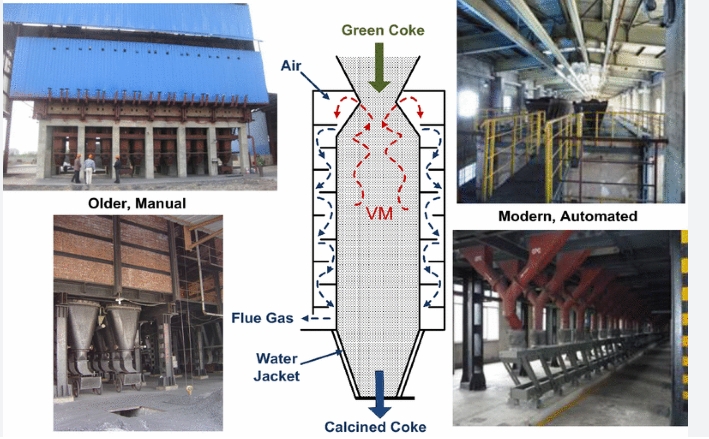
Calcined Petroleum Coke (CPC) is a vital material with diverse applications, ranging from aluminum smelting to steel manufacturing and beyond. Ensuring high-quality CPC production is paramount to maintaining the integrity and efficiency of various industrial processes. In this article, we delve into the critical aspects of quality control in CPC production.

Quality control in CPC production starts with raw material selection. The choice of the right petroleum coke feedstock is essential. It should have low sulfur and metal content, as well as low impurities. Careful assessment of the raw material is crucial to guarantee a high-quality end product.
Before calcination, the raw petroleum coke undergoes pre-treatment processes to remove volatile components and moisture. Quality control measures must be in place to ensure that the pre-treatment is carried out efficiently. The goal is to eliminate undesirable elements and prepare the coke for the calcination process.
The heart of CPC production is the calcination process, where raw petroleum coke is subjected to high temperatures to eliminate impurities and enhance carbon content. Tight control of temperature, gas flow, and residence time is necessary to maintain product consistency. Advanced monitoring and automation technologies aid in achieving precision during calcination.
The particle size distribution of calcined petroleum coke is a critical quality parameter, particularly for specific applications such as anode production. Ensuring the right particle size is achieved through precise grinding and sieving processes. Quality control checks at this stage help meet customer specifications.
Accurate chemical analysis is imperative to verify the composition of CPC. Key parameters include carbon content, sulfur content, and metal content. Regular sampling and analysis ensure that the product consistently meets quality standards and customer requirements.
Bulk density and porosity are essential physical properties of CPC. They influence its performance in various applications. Quality control measures include routine testing to confirm that bulk density and porosity meet industry standards and customer expectations.
CPC needs to withstand mechanical stress in various applications. Quality control assesses its mechanical strength through methods such as the determination of crushing strength and abrasion resistance. These tests help guarantee the suitability of CPC for its intended use.
Impurities in CPC, such as nitrogen, hydrogen, and volatile matter, can negatively impact its performance in industrial processes. Quality control measures involve strict limits on these impurities and regular testing to ensure compliance with specifications.
Moisture content is a critical parameter in CPC quality control. Excess moisture can lead to issues during handling and transportation. Effective drying processes and moisture monitoring are essential to maintain the desired moisture levels.
Quality control in CPC production extends to environmental considerations. Producers are increasingly focused on reducing the environmental impact of their operations, including emissions and waste management. Compliance with environmental regulations is a significant aspect of quality control.
Quality control in calcined petroleum coke production is a multi-faceted process that encompasses the selection of raw materials, pre-calcination treatment, precise control of the calcination process, particle size distribution, chemical analysis, physical properties, impurity control, and moisture content. Meeting quality standards not only ensures the reliability of CPC in various applications but also contributes to environmental responsibility and sustainable industrial practices. The ongoing commitment to quality control is essential for the industry's success and growth in the future.

Write a Message